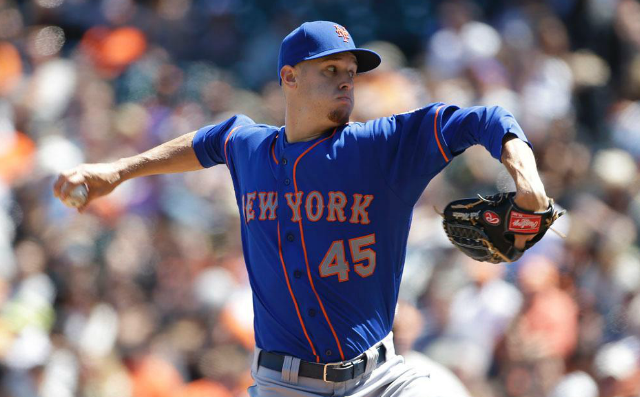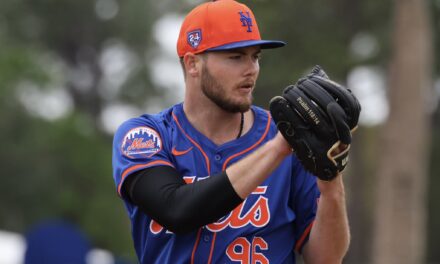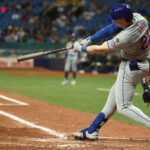
So far, Zack Wheeler is walking a man every other inning and not striking out too many more, and he’s doing it while throwing little beside fastballs. That according to Tim Marchman of the Wall Street Journal who did some digging and found some historical comps for the Mets rookie righthander.
Marchman found 29 comps and according to Pitchf/x data from FanGraphs, even if Wheeler never becomes the elite-level starter some had projected, the odds are very good that he will be a viable piece either as a mid or bottom of the rotation starter or a reliever. That would be his floor and not his ceiling.
The defining features of Wheeler’s game so far are his velocity and his lack of effective secondary pitches. (This last isn’t as much of a problem as you might think—you can refine a breaking pitch, but you can’t learn how to throw 98 miles per hour.)
Finding direct comparables isn’t easy because few starters throw that hard, but if you lower the bar a bit, to a 93 mph fastball thrown at least 70% of the time, you come up with quite a few pitcher seasons—29, in fact, since 2008. Run them down, and you could start swelling with optimism.
He goes onto say that twelve of those seasons included great arms like Matt Garza, Gio Gonzalez, Clayton Kershaw and David Price. A few more mid-level pitchers, followed by three more comparables—Bobby Parnell, Dustin Nippert and Mitchell Boggs— who went on to enjoy decent runs as hard-throwing relievers.
Another nine seasons were had by a motley range of helpful, not-great starters, ranging from Homer Bailey and (somewhat alarmingly) former Met Mike Pelfrey to Ross Detwiler, currently pitching not all that well for the Washington Nationals. As with the relievers, this isn’t a bad thing. Data points suggesting that your downside is as a mid-rotation starter capable of the odd pretty good year, like Pelfrey’s 2010, are a good thing.
Finally you have three pitchers who were outright bad, or present inconclusive cases—Daniel Cabrera, Lucas Harrell, and Rubby de la Rosa. Turning up this few busts in a group of pitchers this large is unusual.
In all, the results here clearly suggest success; pitchers with a fastball this lively nearly always turn out to be useful, and more than that, they seem to very rarely go bad.
These are the only comparisons I like to see. I can’t tell you how I hated some of the wild comps that were being thrown around before Wheeler even stepped foot on a major league mound, many of whom said to expect better than what Harvey is doing. Really? It’s almost always very unfair to the player and 99.9% of the time those comps are wrong. At least with data-based historical comps, you have more to work with.














